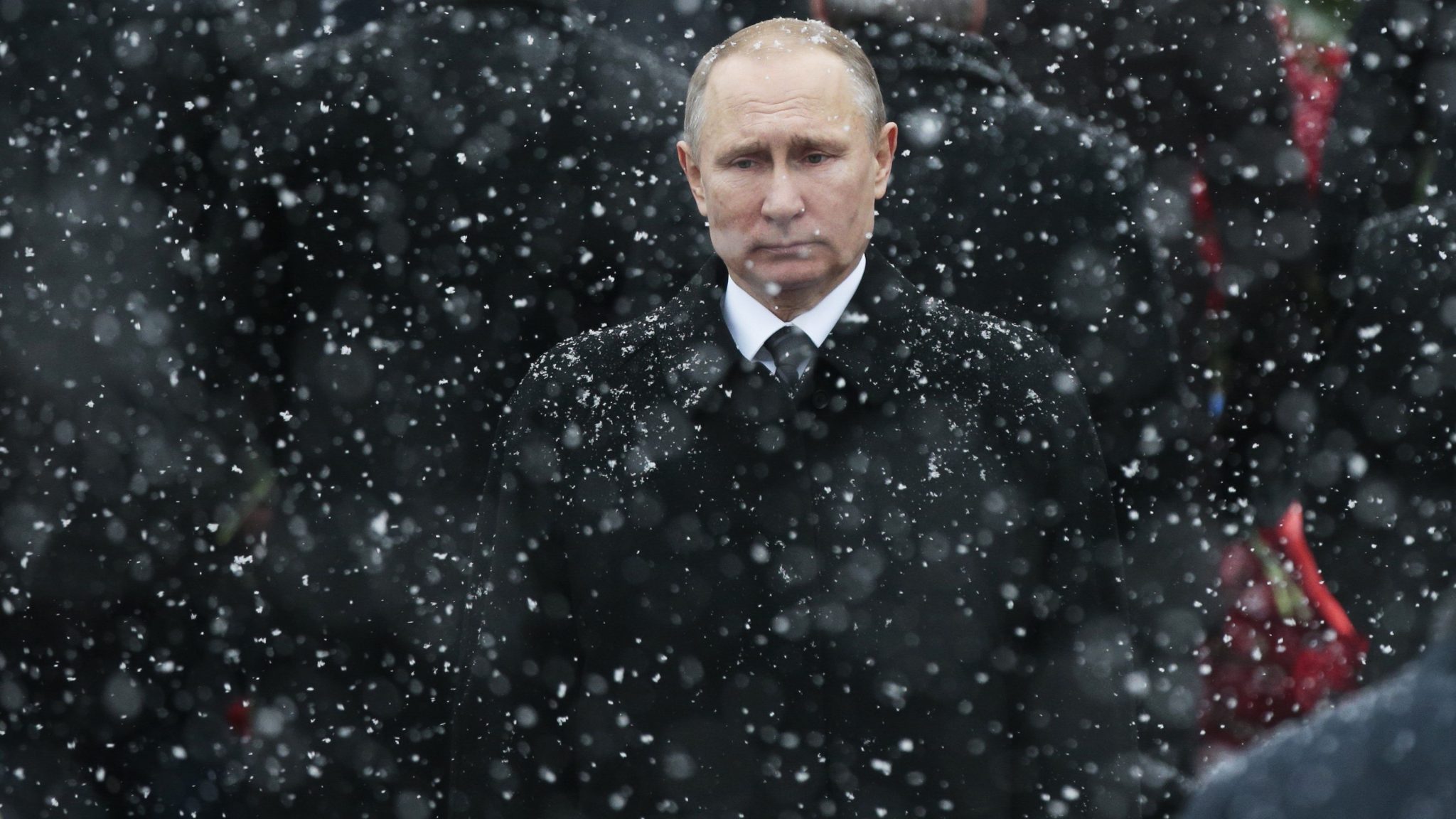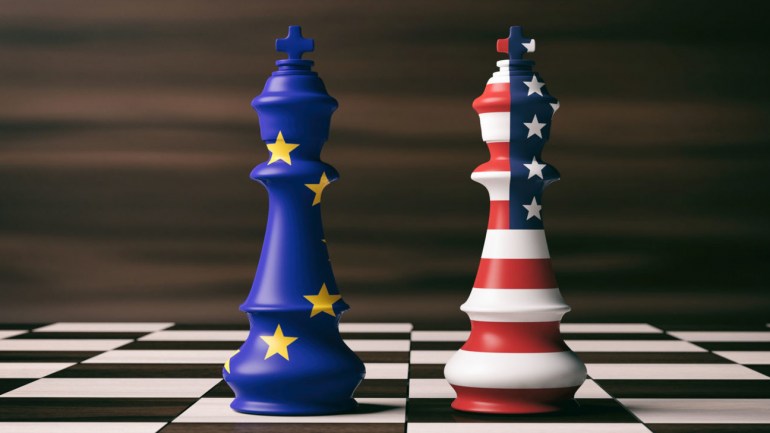
Across Russia, millions stare at their television sets, mouths agape. In a shocking turn of events, president Vladimir Putin has called it quits — despite what seemed like another likely run and another likely victory.
After 18 years in office, he has just told Russia, he’s tired. He’s wary of a government ruled by old men, something he’s been suspicious of since his time in East Germany and the fall of the Soviet Union. And he believes given the challenges Russia faces, a new generation of leaders is needed to address them…
The above scenario is unlikely. Vladimir Putin will most probably run in the 2018 election and he will most probably win. But be it this election, next election, or beyond, it is a certainty that his political career will come to an end. And given an institutional framework, if not political order, built around him, that eventuality has tremendous implications for Russia. To explore the topic, Bear Market Blog asked a number of Russia specialists what they would expect to see in the first year of a post-Putin Russia. They talk about inter-elite issues, likely successors, and more. It’s a thought experiment, to be sure, but a valuable one.
Max Hess – Senior Political Risk Analyst, AKE Group
The success of the first-year of any post-Putin transition will be largely dependent on his successor’s ability to maintain the existing social contract with the political, security and economic elite. I have argued previously that corruption strengthens the Kremlin and believe this will be doubly-true for ensuring Putin’s successor avoids political turbulence and opposition, both covert and overt. The most serious potential challenges to a transitioning Kremlin come not from the street, but from the elite. The number of billionaires in Russia has ballooned since the Yeltsin-Putin transition, Ramzan Kadyrov has established a personal army in Chechnya, Putin’s allies have taken over Russia’s key state enterprises, and the ‘siloviki’ have returned to the heights from which they were displaced in the 1990’s.
Perhaps most significantly, the length of Putin’s period in power means an intergenerational transfer of power and prestige has also accompanied these elite developments. After Putin replaced Sergei Borisovich Ivanov as his chief of staff in August 2016, tongues were set wagging over the meaning of his new ‘personnel policy’. Arguably the most common of these arguments was that Putin was “replacing his old guard with young and loyal bureaucratic figures.”
Yet the Russian elite is perhaps best seen as a class of nobles. Comparatively little attention was paid to the fact that Ivanov’s son, Sergei Sergeevich Ivanov, was named president of Alrosa, the world’s second-largest diamond producer, only seven months after his father’s dismissal. Ivanov may have stepped down from his post, but his family’s access to cash and power remains. As with any nobility, Russia’s elites will want to ensure their tithes, holdings and influence remain under their control. If the elites fear a loss of the vast wealth and power built up under Putin, they are likely to bring to bear the full brunt of their resources. As a result, for the name on the signature line to change, the social contract will – at least initially – have to remain the same.
Chris Miller – Assistant Professor of International History, Fletcher School
When Yeltsin appointed Putin president in 1999, there was little chance that Yeltsin would continue to wield power from retirement. He was sick, and a decade in office had left Russians eager for new leadership. If Putin were to retire when his current presidential term ends, there is little reason to think his political career would be finished. The dilemma of a personalized political system is that it is nearly impossible to separate the person from the system–even if he says he wants to retire.
If a young successor takes over from Putin in 2018, he will find himself in the same situation as Medvedev did between 2008-2012 — held guilty for problems without being given responsibility for solving them. No one, least of all Russia’s other elites, would take the new president more than half-seriously. If the new president followed all of Putin’s wishes, other political actors would ignore the president and continue to lobby Putin. If the new president did not follow Putin’s wishes, could he retain his hold on power? It is easy to imagine how such a system could cause instability. In the Kremlin’s view the Medvedev interlude led to the Bolotnaya protests. Putin’s retirement could well have similar results–which is why no one in Russia’s political elite wants to risk it.
Nick Trickett – Contributor and Columnist, Bear Market Blog
Were Vladimir Vladimirovich to elect to not run and appoint a successor, there would be likely be a flurry of corporate and personal intrigue over the energy and infrastructure sectors of the Russian economy and, by extension, some aspects of foreign policy. To be clear, Putin would remain the most powerful man in Russia and clearly take the mantle of kingmaker. But a formal retreat from the presidency would create new openings in the Gazprom-Rosneft feud, particularly since it would be unthinkable at present to return Dmitry Medvedev to the presidency in yet another rokirovka (castling).
Those most likely appointed in this scenario would have fewer business and personal ties to the core of “Gazprom men” like Medvedev and those officials in his camp like Arkady Dvorkovich or his appointees in the Far East like Yuri Trutnev. The rift between Gazprom and Rosneft will likely be one of the primary foci of shifts in power for two reasons: they provide the most economic activity and money for the state budget of Russia’s corporate giants and Igor Sechin has been on the warpath asserting his dominance domestically to a greater and greater degree.
In short, there wouldn’t be a metaphorical showdown at high noon on Manezhnaya, but a conflict through lawsuits, frame-up arrests, and increasingly diffuse and petty lobbying efforts. I think that Rosneft and its allies in the FSB and GRU, already gaining more power over organs such as the Customs Service, would use the absence of Putin as an official mediating figure standing in front of the cameras and shaking foreign leaders’ hands to double down on going after figures like Yevtushenkov. But the flip side is that it’s not clear Rosneft’s cadre are best suited to handle the pressing reform agenda that Russia faces. A retrenchment of state economic controls would worsen much of the current economic crisis, leaving leeway for more liberal political actors to find compromises in a post-Putin political landscape.
Igor Sechin set up Alexei Ulyukayev for arrest largely to defend his turf and push back against any attempts to privatize a majority of the shares of Rosneft. Ulyukayev was a touch too liberal for Sechin’s taste and a more vocal proponent of pursuing better trade relations with Japan and South Korea. Ulyukayev’s replacement for Economy Minister Maxim Oreshkin has recently been seen to be one of Putin’s favorites, likely in part because of his youth (he’s 35) and his lack of political heft. Oreshkin is drafting economic reform plans that likely contradict those proposed by figures such as Alexei Kudrin. But without Putin sitting in power, it seems quite possible that Anton Siluanov and those at the Ministry of Finance would take the opportunity to try and dismember Oreshkin’s Ministry for Economic Development.
However you spin it, reform agendas are set to be thrown into chaos if they can be said to be moving now. That’s to Rosneft and Igor Sechin’s benefit. Despite knocking off Exxon for top energy company according to S&P Global Platts rankings, Gazprom is losing the price war in Europe, in China, and domestically over time. Now that Rosneft is acquiriing natural gas assets abroad, it’s only a matter of time before Gazprom and Rosneft exports compete in some fashion on some market. Pricing pressure will encourage domestic reforms and one will likely find Rosneft trying to court more liberal political actors in the Gazprom camp along with Novatek and possibly even Lukoil.
While this is going on, the new president is going to need to buy the legitimacy that Putin has successfully manufactured and poor economic prospects aren’t a good look. That will likely mean greater willingness to privatize parts of large state assets, most visibly Russian Railways to businessmen like the Rotenbergs, as a means of raising capital, shoring up budgets, and financing megaprojects that display state competence and symbolize state might.
Without Putin, there will also likely be greater variance in approaches with Beijing and Tehran based on differing attitudes in Moscow over dependence and cooperation. Rosneft may be the biggest overall beneficiary if it can successfully leverage its considerable “dark power” to achieve its aims at home against Gazprom, but Lukoil may prove to be the biggest winner in relative terms as whoever replaces Putin will desperately need CEO Vagit Alekperov onboard to enhance cooperation with Iran outside of the military and intelligence spheres. Russia without Putin is, sadly, mostly a victory for those with ties to the FSB and GRU. But reform requires reformers and Navalny would certainly pounce on the opening. Expect arrests, scandal, and policy ambiguity. Lots of ambiguity.
Miranda Lupion – Contributor, Bear Market Blog
The average life expectancy for Russian males is 65. Russian President Vladimir Putin is 64, and his birthday is this fall. And although he likely enjoys better health care than most, if not all, Russians, he also relishes the well-publicized occupational hazards of the Russian presidency, such as bear hunting in Siberia. These facts alone testify to the non-zero chance that, come 2018, a new man could inhabit the Kremlin Senate.
However, it is far more likely that he will willingly appoint a successor than perish in the jaw of Russia’s totem. His age and his proclivity for stability – especially for stable transitions – may make him inclined to anoint an heir sooner rather than later. After all, the earlier he and his advisors debut his replacement, the longer Putin can “ghost govern” – as he did during the latter part of then-President Dmitry Medvedev’s term. This scenario strives to ensure an orderly transfer of power, as the new president largely continues Putin’s policies. It also protects Putin’s image, as Russian citizens associate a new leader with the hardships that low oil prices, continued sanctions, and late or decreased pension payments may bring.
Who would govern the world’s largest country is a question plaguing nearly every Western intelligence agency and amateur Russianist. I bet it would be a lower level bureaucrat in his (yes, his) late thirties or early forties, who has perhaps served in local or regional government, but is otherwise not well-known. He is loyal, scandal-free, and a tabula rasa on which Putin can imprint his vision for Russia. His youth may make him more competitive running against Alexei Navalny or a “dark horse” reform candidate, who appeals to an increasingly frustrated, although not yet fed up, younger generation.
[toggler title=”Source” ]This piece was originally published by Bearmarketbrief. [/toggler]



